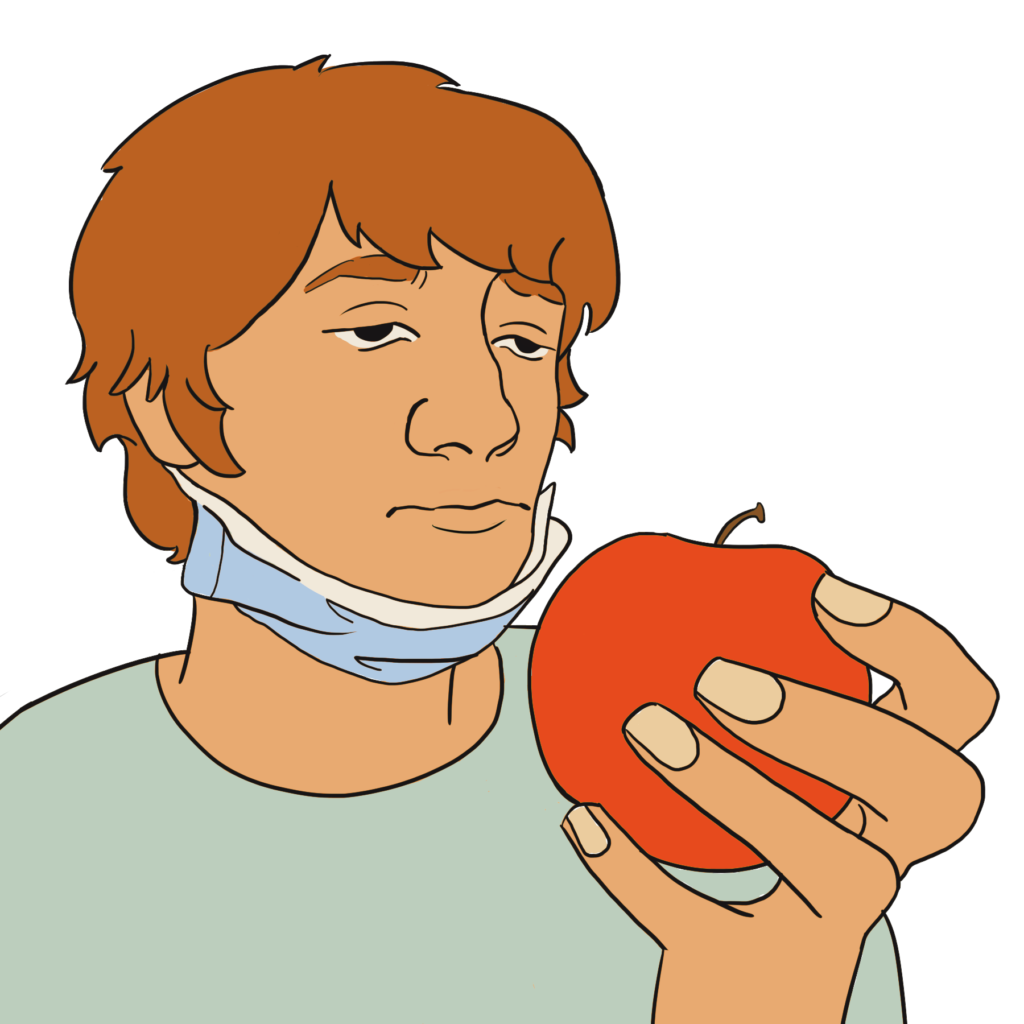Students grapple with long term consequences of COVID

Alisha Soni | The Chronicle
The ability to taste and smell is too often taken for granted.
Apart from flu-like symptoms, COVID-19 can affect the ability to taste and smell. According to the Centers for Disease Control and Prevention (CDC), symptoms for a normal case of COVID last from a few days to a few weeks, however, some Mason High School (MHS) students are experiencing long-term effects of a loss of taste and smell from COVID.
Junior Rachel Simko first contracted COVID in January 2021. Simko’s symptoms solely consisted of the loss of taste and smell, which she is still experiencing although she recovered from COVID. However, she said that it was a difficult adjustment because her eating experience changed completely.
In adapting to her lack of taste and smell, Simko’s diet mainly consisted of soups and fruit – soup had a water-like taste and fruits were comparable to a pile of sugar. Simko said that she was not able to taste or smell most foods, but there were certain foods that stayed normal such as peanut butter and ranch and others that were distorted, such as chocolate having a rotten fruit taste.
“[Now] when I eat, I solely rely on texture,” Simko said. “Foods that only have one texture, I would get sick of really quickly.”
As Simko’s symptoms continued, she began seeing her lack of taste and smell as a new normal. She said her lack of taste and smell has allowed her to define a different relationship with food after learning to adapt and has new favorite foods such as pasta and meat, due to their textures.
“It became more normal for me but [it] affects the experience because eating is more of a chore [now],” Simko said.
Due to COVID, senior Gavin Dove lost both his sense of taste and smell for around four months starting in January 2021. Besides the impact it had on his senses, he never received any flu-like symptoms. Like Simko, Dove became reliant on the texture of his food to eat. With this lack of experience in eating, Dove was able to find a positive in not being able to taste.
“Eating just became so much more boring,” Dove said. “It was hard to have a favorite [food] when everything tasted like nothing. I tried to make the best of it and I tried to be healthier [because I am] kind of a picky eater.”
In the first few months of losing her taste and smell, Simko had been experiencing phantom smells, where she would randomly come across an unprompted smell that was not physically present.
“I would smell [something] but it was not actually [there],” Simko said. “I would be smelling corn in the middle of my history class, but [I did not know] why would that be happening.”
Besides the impact that the lack of the two senses has had on her, Simko said that there lie potential risks in losing taste and smell.
“There’s always some awkward situations, specifically with smell, like [when] I’m trying to cook something and I can’t tell if it is spoiled or not. I could get sick,” Simko said. “If there’s a fire, I wouldn’t be able to smell the smoke.”
In an attempt to regain their senses, Simko and Dove have both tried popular online remedies and methods. Users on the social media app TikTok recommended burning an orange on a grill and eating it with brown sugar to bring back the sense of taste. Although Dove said that he could taste the orange, it was ultimately not effective for both Simko and Dove.
“The only thing I had tasted for months was this orange,” Dove said. “After I regained my taste and smell back, orange juice is more bitter. I used to love orange juice, but I don’t enjoy it as much [now].”
Besides the burned orange method, Simko said she tried olfactory training, which is the process of imagining a smell and trying to smell it.
“I couldn’t imagine what anything tastes or smells like anymore six months after I lost my taste,” Simko said.
Junior Abbie Maier contracted COVID in December 2020. Maier’s symptoms consisted of intense pain and stomach aches, resulting in multiple trips to the emergency room. Although Maier had the symptom of lack of taste and smell for only a few days, she said that it worried her that her senses might never return.
“I couldn’t smell anything but I didn’t think anything of it,” Maier said. “ I was in denial about it because I didn’t want to lose my smell. I know someone that still can’t taste or smell and it’s been two years.”
As of December 2022, Simko has been lacking her sense of taste and smell for almost a year. Although she has grown accustomed to this new situation of living, she said she still misses her ability to taste and smell.
“At this point, I don’t think it’s coming back,” Simko said. “I want to be hopeful but I don’t think that’s gonna happen.”
